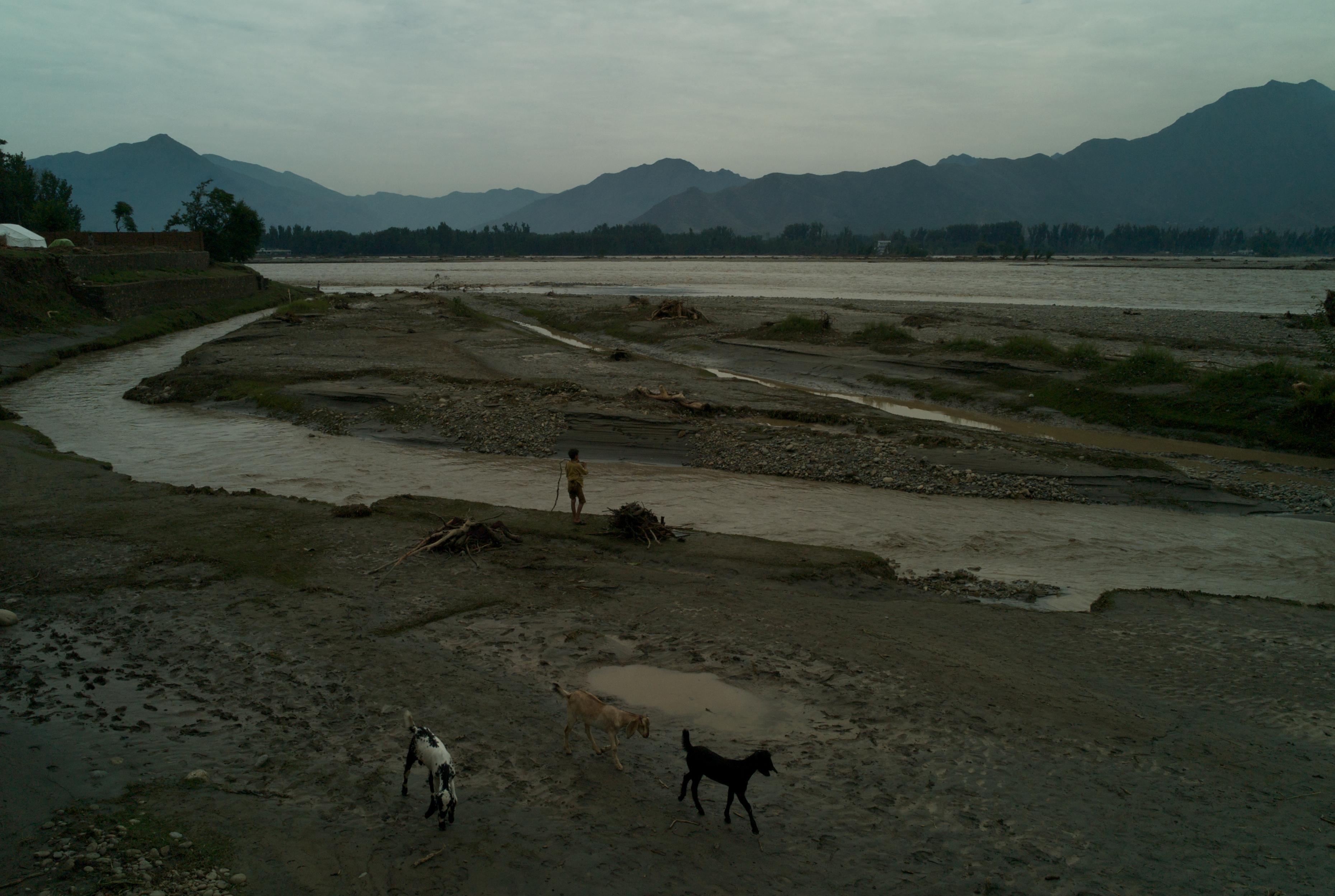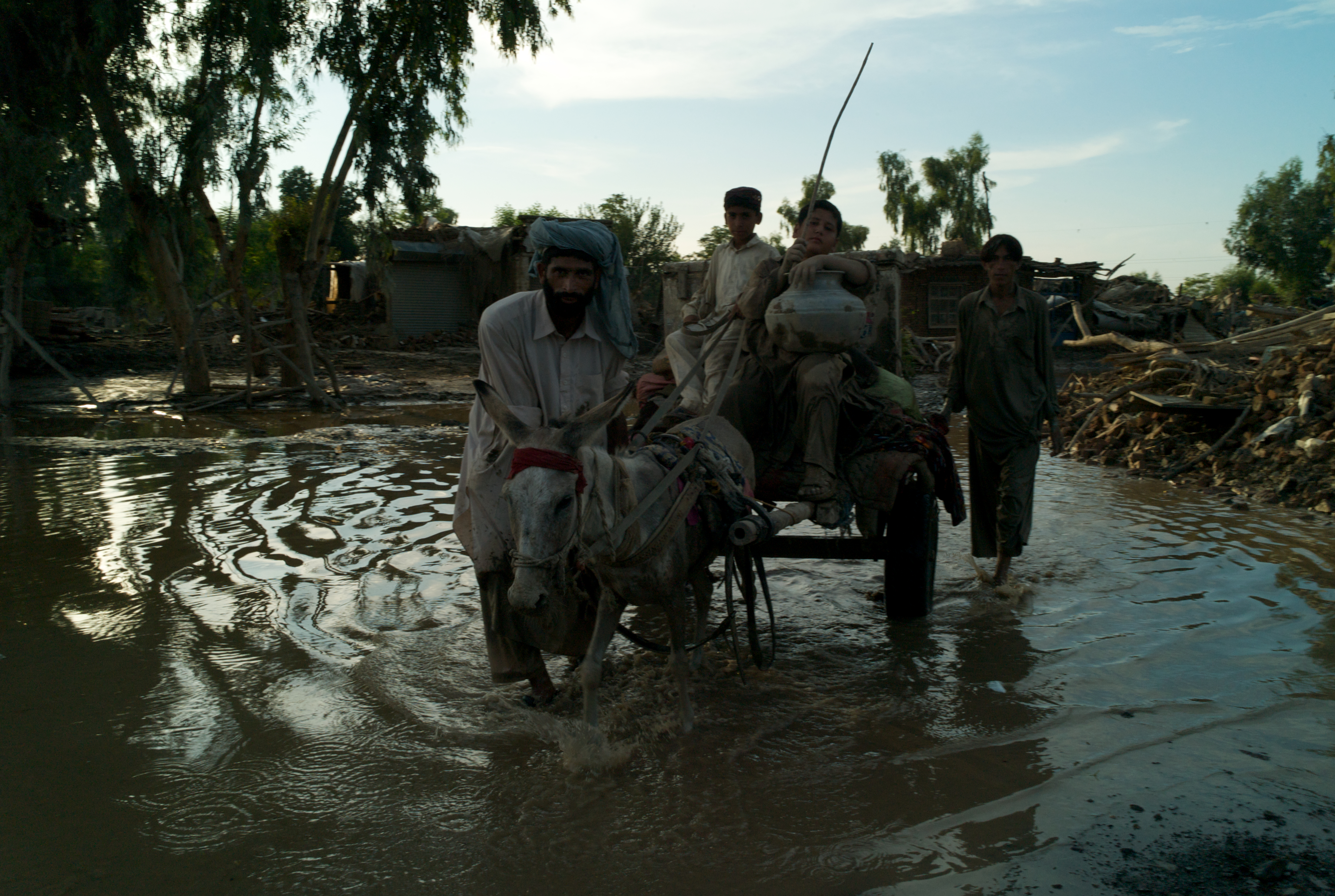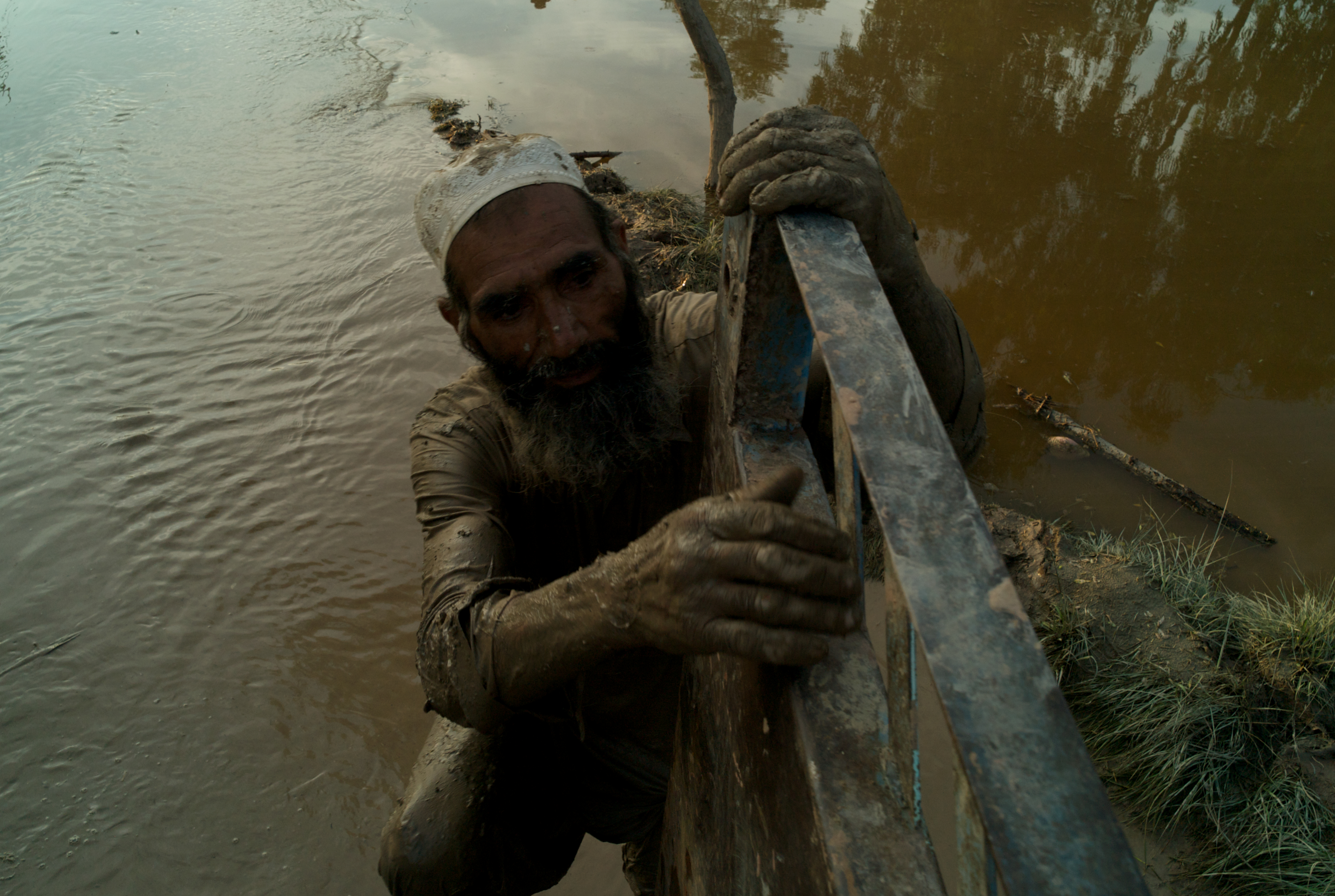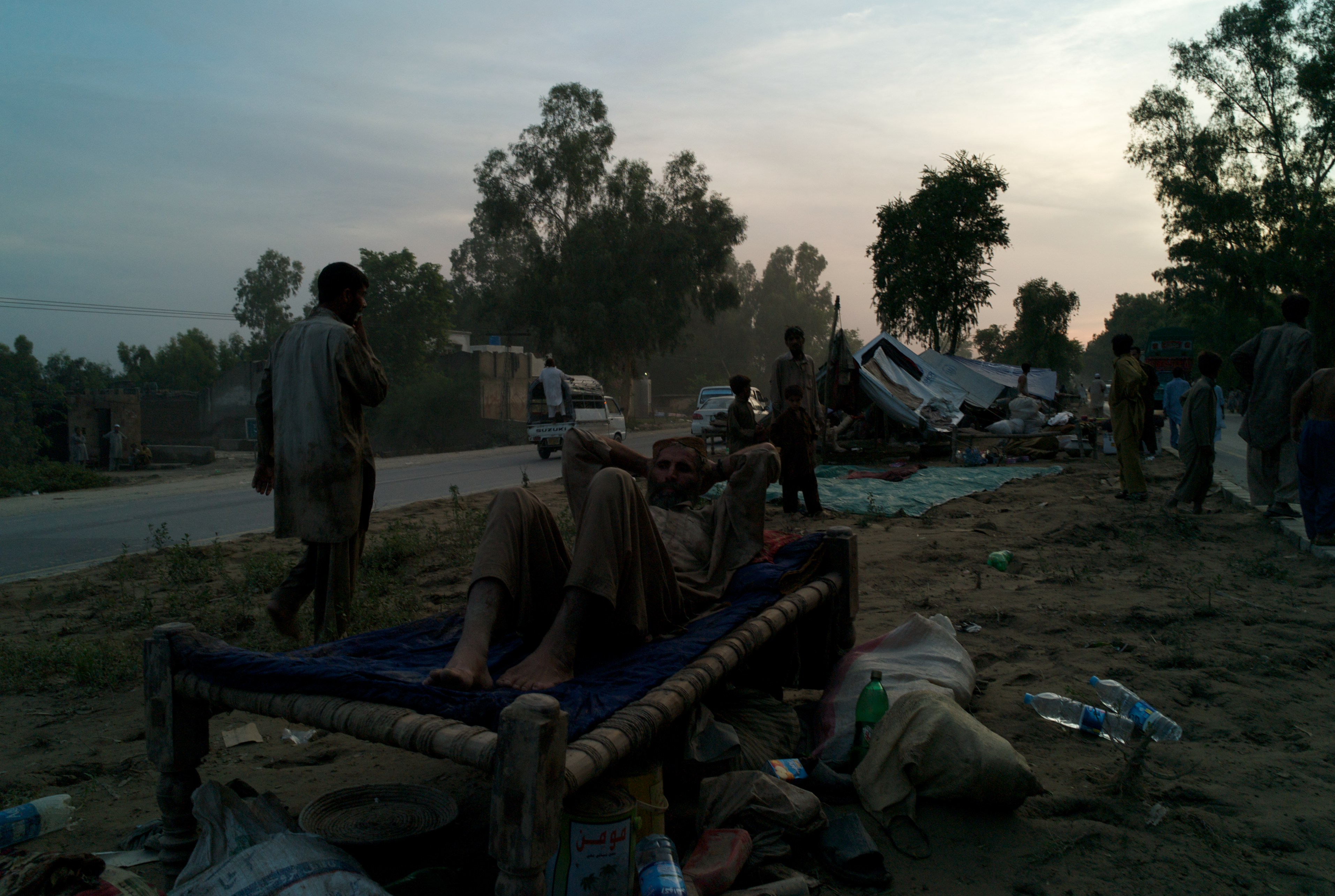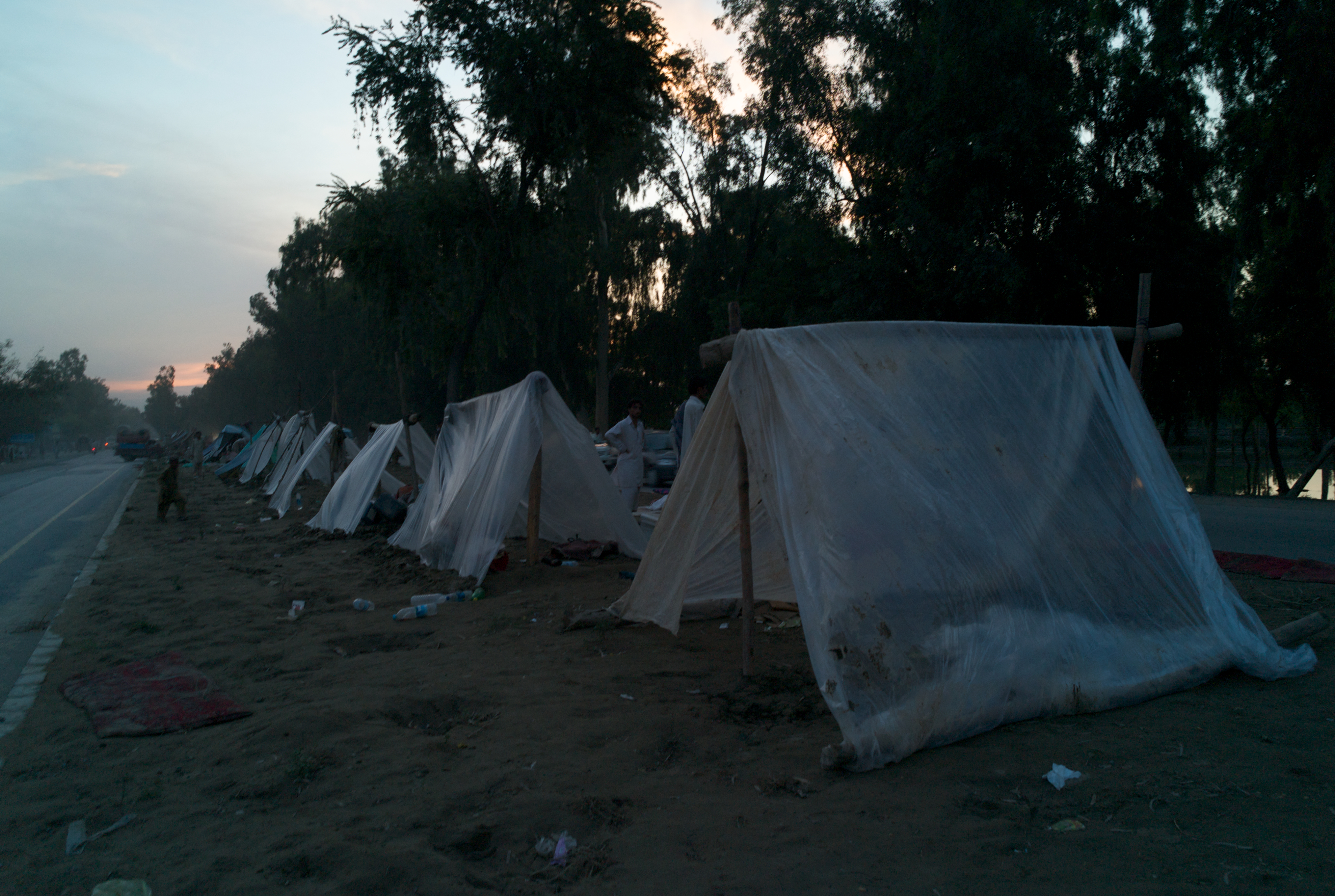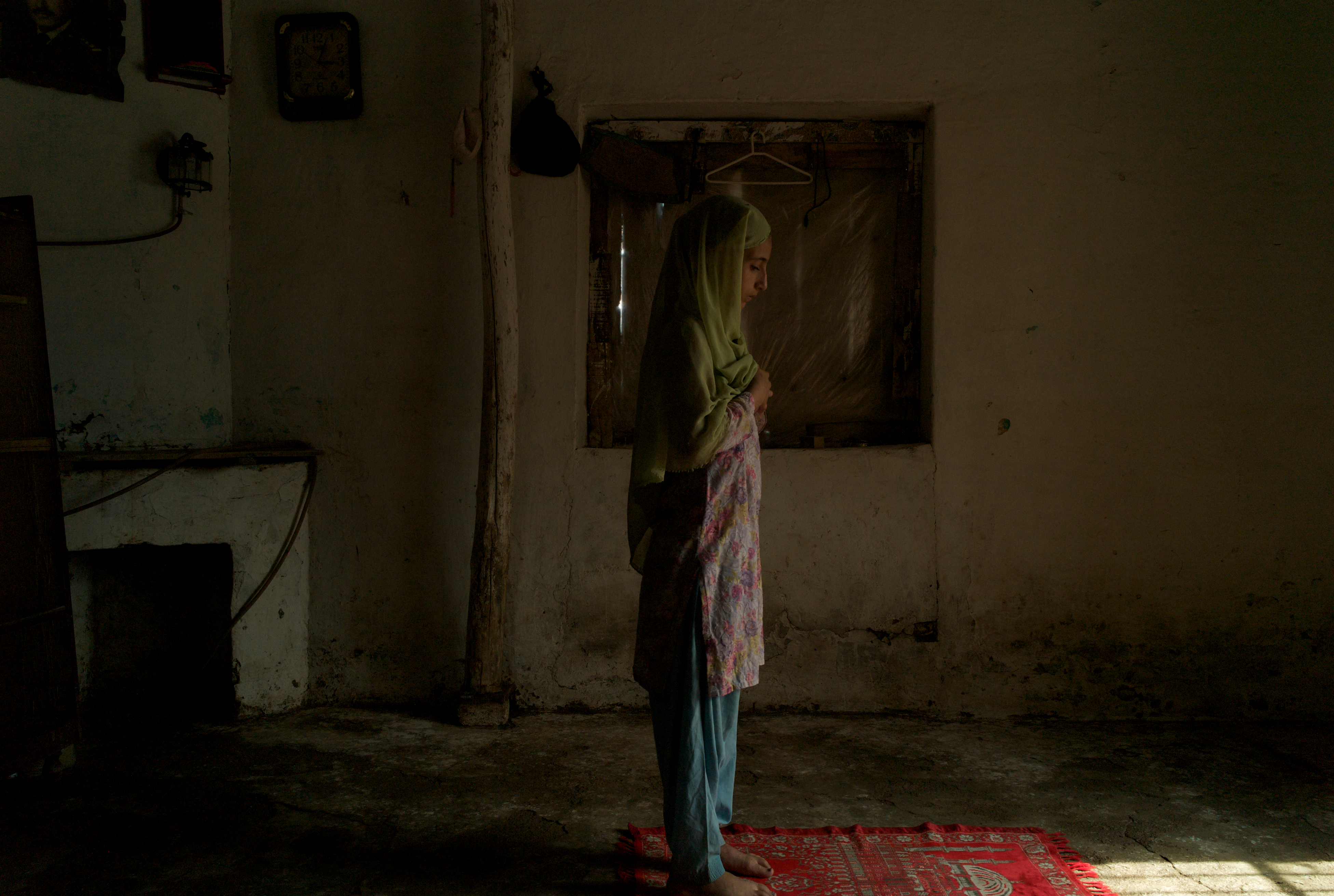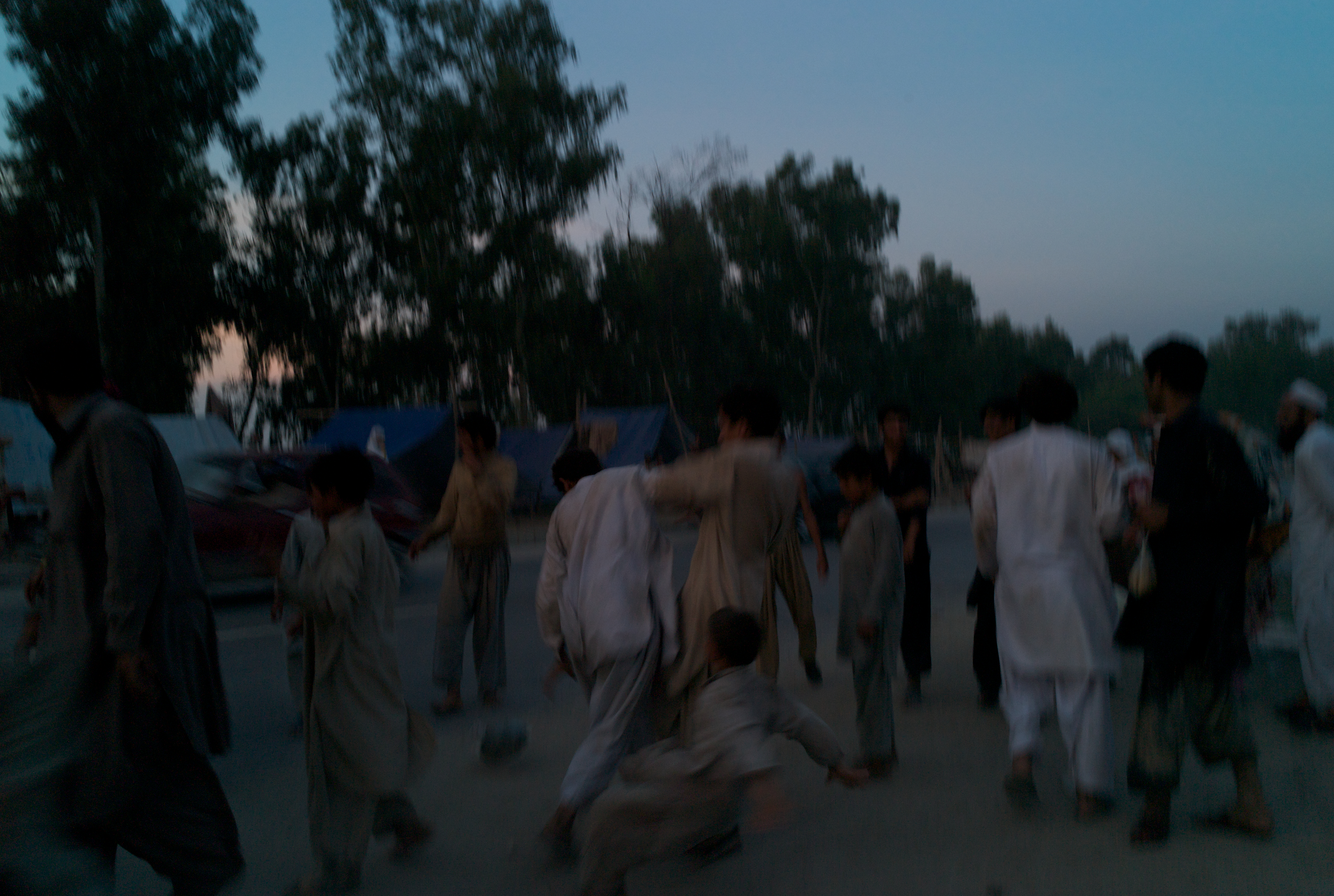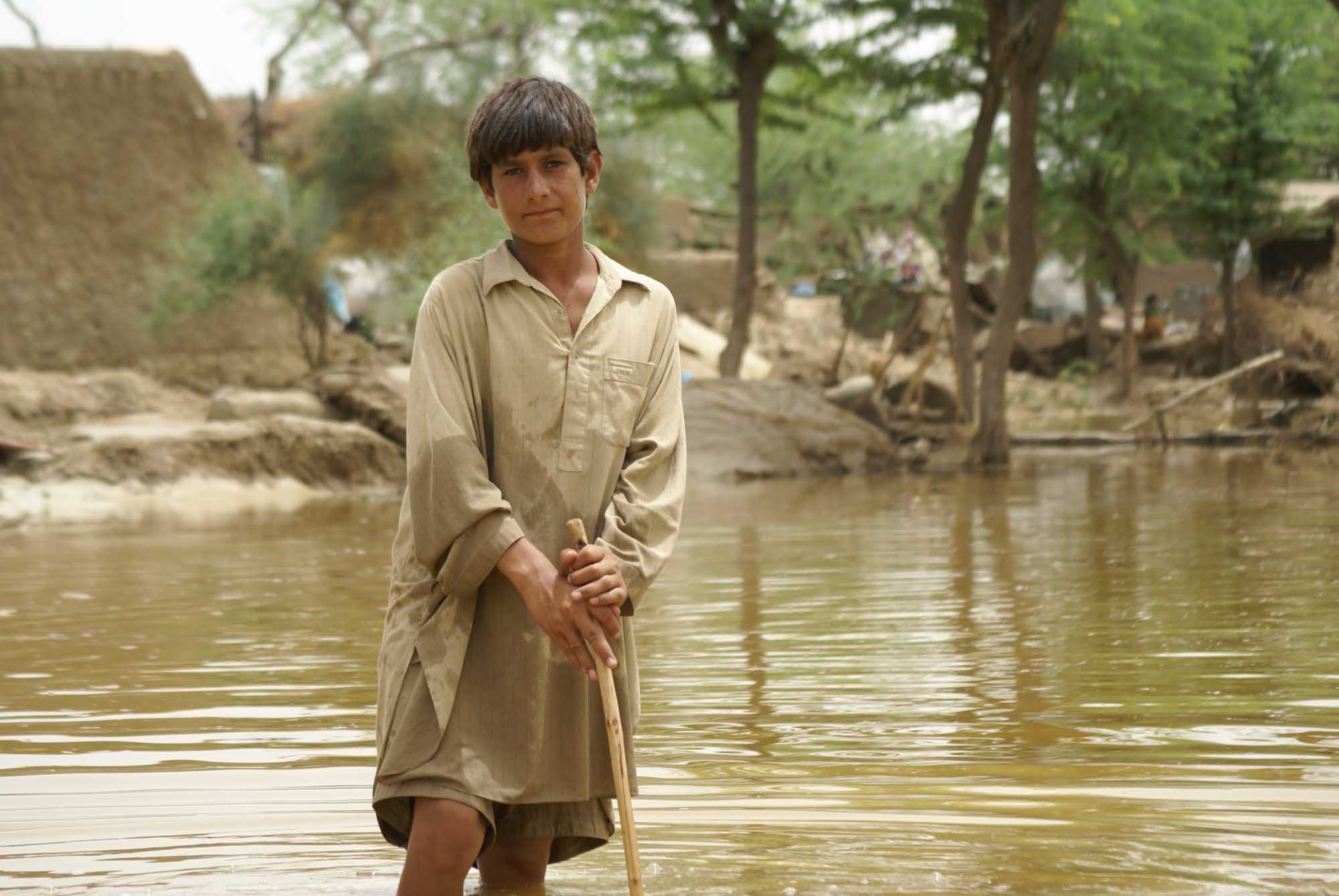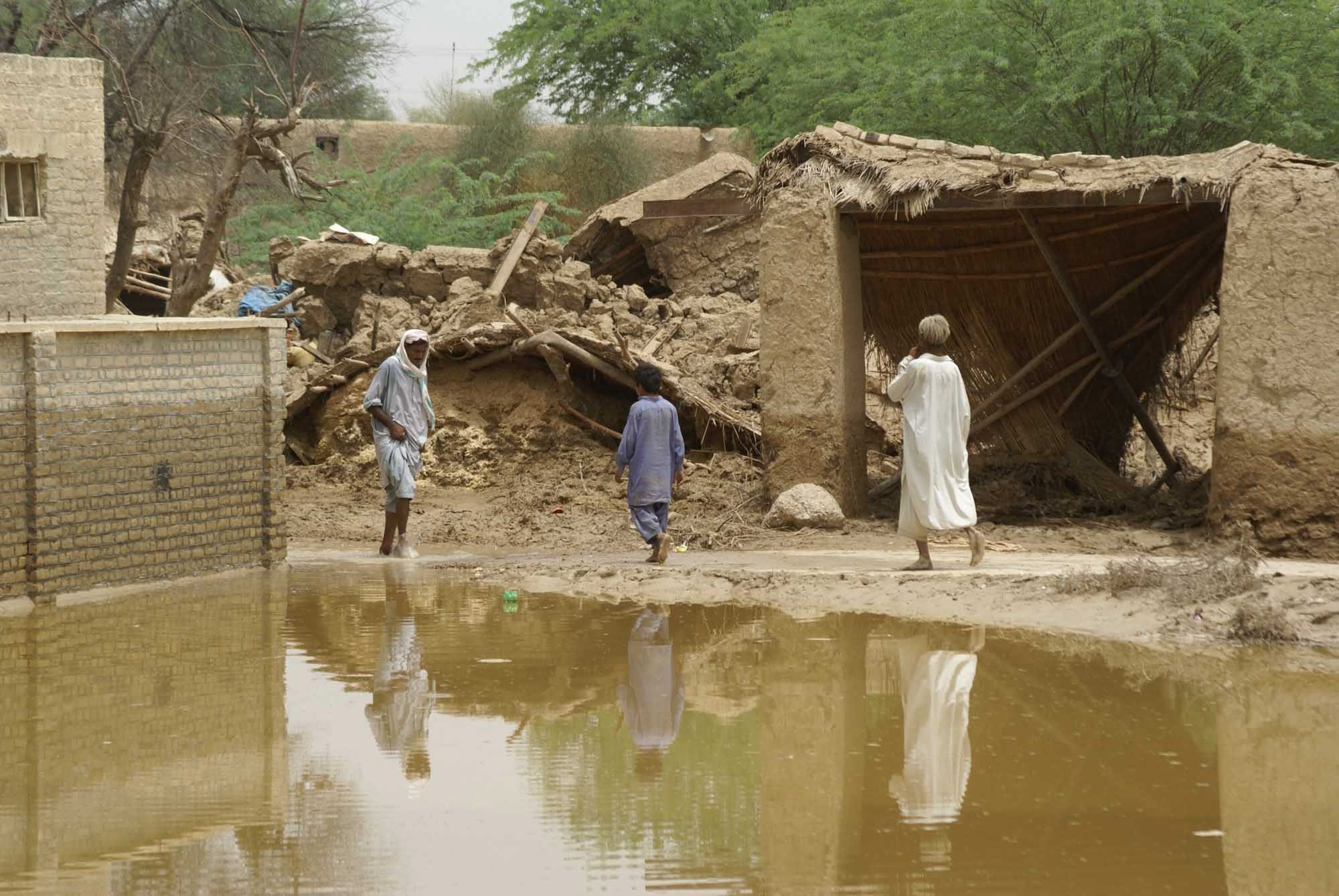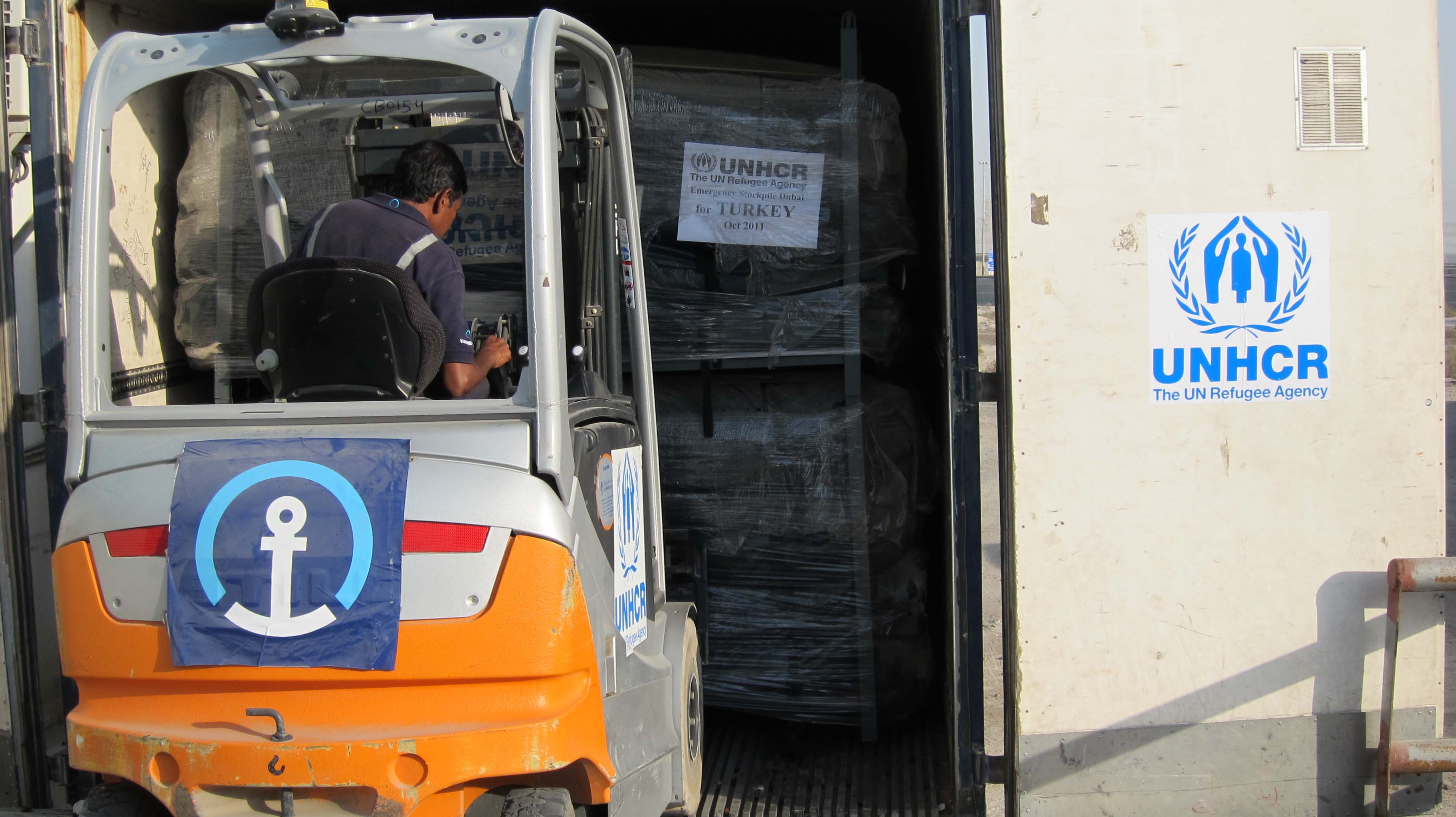UNHCR rushes aid to Balochistan as number of flood victims soars
UNHCR rushes aid to Balochistan as number of flood victims soars

QUETTA, Pakistan. August 16 (UNHCR) - An airlift of UNHCR relief supplies arrived in Quetta today to help the soaring numbers of flood victims in the cities and towns of Balochistan province.
Four Pakistan government C-130 Hercules aircraft moved 64 tonnes of tents, plastic sheets and mosquito nets from UNHCR stockpiles in Peshawar to Quetta to help speed up relief efforts. More airlifts are expected in the coming days, pending the availability of aircraft.
Over the weekend tens of thousands of people fled the southern Sindh town of Jacobabad to Sibbi, Nasirabad and Quetta districts of Balochistan. Tens and possibly hundreds of thousands more are on the move as a result of further flood warnings in the border towns.
Many of the people rushing into Balochistan are taking refuge in communal buildings like schools, hospitals and stadiums. Some are living under the open skies. They join tens of thousands flood victims who are already in the province bringing the current estimate of displaced people and others severely affected by floods in Balochistan to around 545,000 people. Figures are likely to change as assessments continue.
"We are facing serious challenges moving enough relief supplies into the province to meet the ever-mounting numbers of people in need of shelter," said Mr Bekele Nagash, the head of UNHCR's office in Balochistan, who is coordinating humanitarian relief efforts in the province.
"The needs are enormous: people need everything - shelter, food, clean drinking water and health and hygiene items. Together with our sister UN agencies, we are working as fast as we can to get life-saving help to those in need," said Nagash.
Forty-year-old Zaman fled his home in Ghot Hajan Khan Brahvi in Jacobabad, Sindh province along with about 500 families on Friday when waters hit his village.
"The water was five feet high, all we had - our animals, our lands, our crops - are all gone," he told one visiting UNHCR official from a roadside in Quetta where he had fled with his family.
"I just grabbed what I could in a rush, loaded my family on my tractor trolley and came out, not even knowing where to go," Zaman said.
Local authorities have set up a tented site at the 'Eastern bypass' on the outskirts of Quetta using UNHCR tents trucked by road which arrived in the city last week. Further tented sites are planned to help shelter the rising numbers of homeless, but tents are also being provided for people to take back home once flood waters recede.
To date, the UN refugee agency in Balochistan has helped some 46,000 people in Sibbi, Nasirabad, Kholu and Jaffarabad districts with shelter materials like tents, plastic sheets, mosquito nets and buckets. The office is hoping to help some 90,000 people but urgently needs more aid.
"Our supplies are dwindling against the growing needs and we continue to face difficulties getting supplies into the province fast enough. We need more airlifts and many more funds to respond to this emergency," said UNHCR's Bekele.
The 64 tonnes of relief supplies on the four planes today included 372 family tents, 4,210 plastic tarpaulins, and 7,800 mosquito nets. A further 3,790 tarpaulins, 7,200 mosquito nets, and 1.8 metric tonnes of soap are waiting to be airlifted when planes are available.
By Duniya Aslam in Quetta and Ariane Rummery in Islamabad


